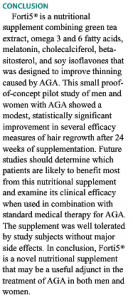“In a randomized trial of 138 older men with age-related low testosterone levels, those who received testosterone gel (AndroGel, AbbVie) for a year to attain youthful testosterone levels had a 20% greater buildup of noncalcified plaque in their coronary arteries than those who received a placebo gel[1]. These findings from the Cardiovascular Trial—one of the seven National Institutes of Health (NIH)Testosterone Trials (T Trials) examining different clinical outcomes in older men with age-related low testosterone levels who receive testosterone or placebo—were published in the February 21, 2017 issue of the Journal of the American Medical Association“.
Many men in our practice test their testosterone levels and find them low. They then go on testosterone, most often in a gel (as reported above) and some of these men add growth hormones as well. Both of these medications make these men feel better, more vigorous and younger (they report this to me). “Previous studies found that testosterone treatment in older men may help improve sexual function, mood, depressive symptoms, and possibly walking distance, but not vitality”.
“Men taking testosterone therapy face a significantly increased risk of blood clots in the first 6 months after starting treatment, warn researchers who say that previous studies may have missed the risk due to methodological issues. The research, which was published online in the BMJ on November 30, shows that the risk of venous thromboembolism (VTE) is increased by 63% in the first 6 months after starting testosterone therapy, corresponding to an additional 10 cases per 10,000 person-years.”
There is a reason why the body drops testosterone and growth hormone levels as we get older. When we take these medications, we are trying to be smarter than what our genetics and our physiology normally dictates. Is that really smart?


